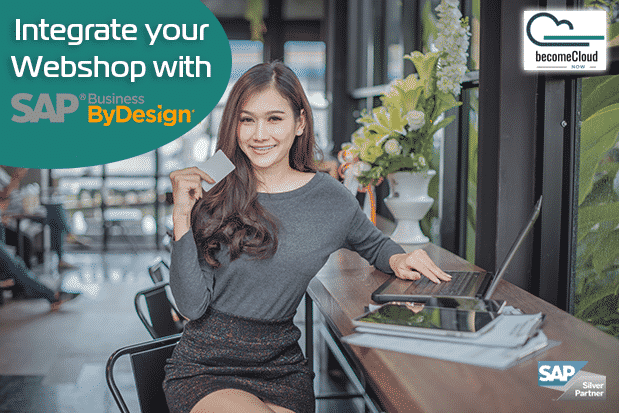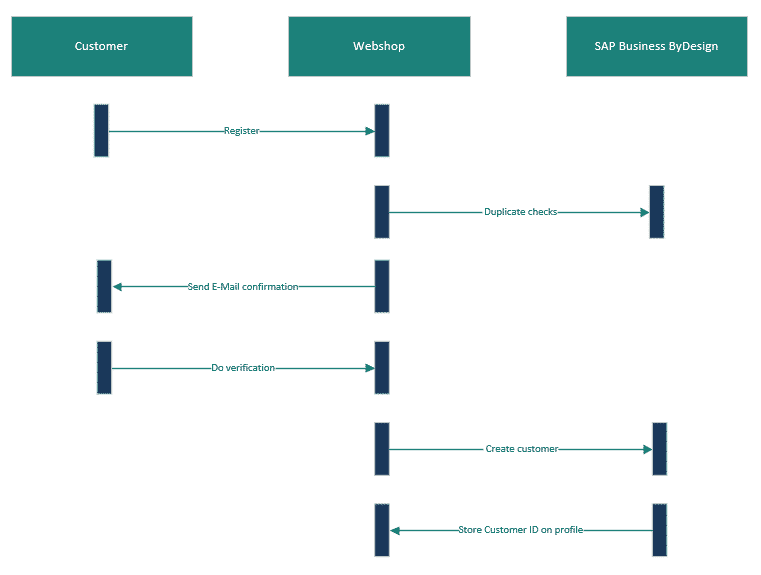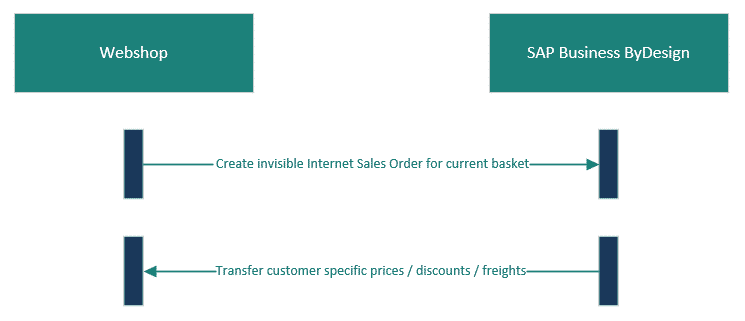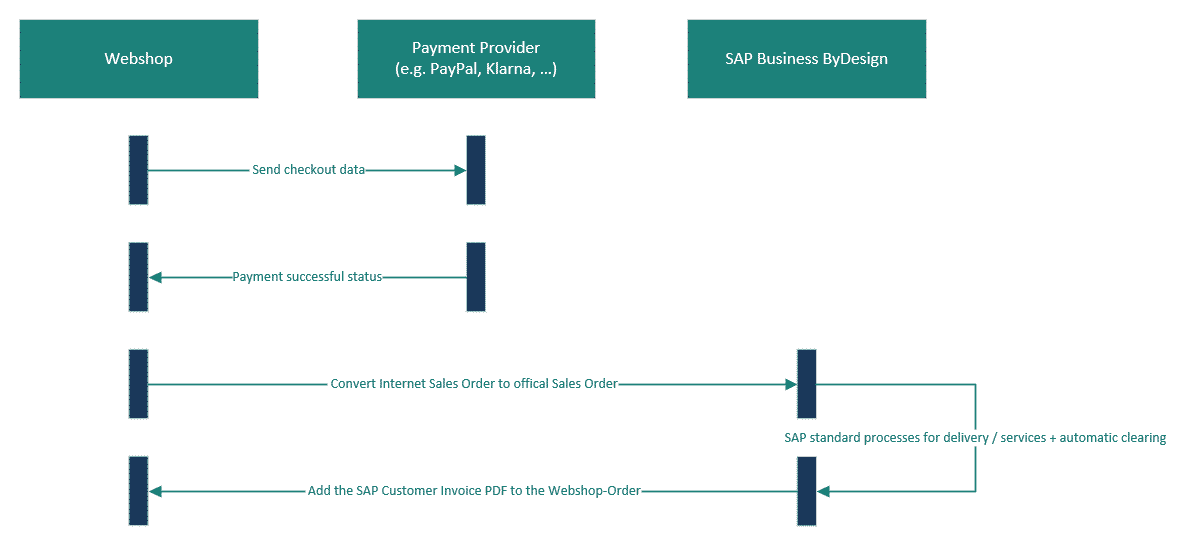We often receive the inquiry from our customers:
Is it possible to connect our webshop solution to SAP® Business ByDesign® without any problems? Can you explain to us how an integration would work and what the whole thing costs? What about availability checks? And which system is leading in terms of new customer registrations or pricing, for example?
We will try to address these points and explain how such an integration with becomeCloud would work.






